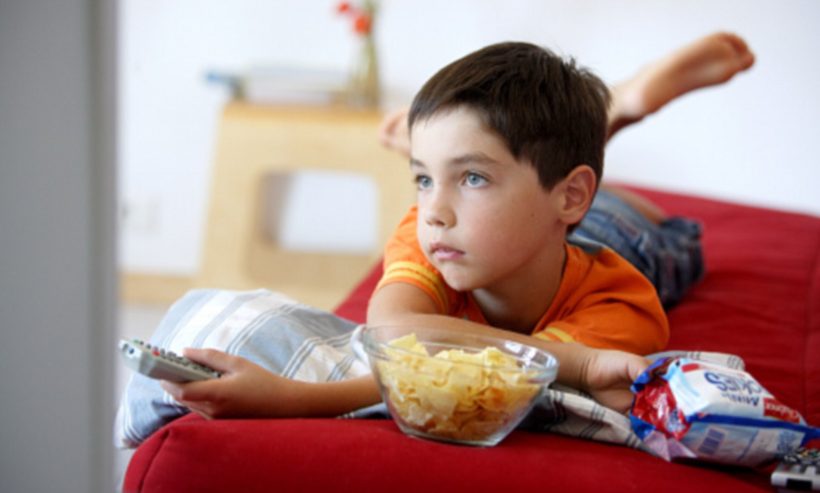How many times have you squirmed when your kid devoured an entire pack of chips? For most kids today, the word ‘snack’ conjures up images of a pack of chips, cookies, chocolates or sugar-filled jellies.
Many children graze through the day eating unhealthy snacks that are not specifically targeted for their age. Snacks that are typically meant for grown-ups easily make its way into a child’s lunch box or evening snack. These highly processed nibbles slowly become a part of a child’s everyday diet.
What children eat during their leisure time has to be monitored for a healthy lifestyle and living. It is essential to make note that eating habits are formulated during the first few years of life, eating nutritious food during the growing phase is a must!
Kids love to snack on junk because of the excessive salts and sugar in the snacks. Children also need to follow a balanced diet depending on appetite and age, which includes the right amount of protein, carbs, fats, vitamins and minerals.
In the process of growing up, suddenly we see a spurt in growth, and their food intake also increases and at times their growth slows down and likewise the food intake. Let them eat as much as they want, and if they don’t complete their food, it’s totally fine. Make up for it by not giving them anything until the next meal. This way, their body clock also sets in and adjusts to the schedule.
As a parent, decide on “what” the kids will eat and “when” they will eat. Let them decide on “how much” to eat.
Do not stop the “not so good food” completely all at once as it only increases the risk of eating too much whenever they have access to it. Plan their food in ways where you also include the “not so good food” along with a healthy meal to strike a balance. It is important to allot a particular time for snacking in between meals. Eating habits must be controlled and a diet has to be followed for the growth and development of the child.
Here are a few tips

Make vegetables interesting for them: If kids hate certain vegetables, they choose an alternative that is snacks. Do not panic if they do not eat veggies, it's a common problem to have among kids. Do not force them. Instead, make varieties using different veggies every day and use them in a way that interests kids. Do not punish them for not eating, they might develop negative feelings towards veggies and will never eat them.
Also, the usage of bright cutlery and plates is an effective method for feeding kids. In addition to all this, make an effort to educate your child about growing vegetables. Make them a part of the process. Try involving them in growing vegetables like tomato, fenugreek, bhindi at home and make them a part of your cooking. This not only gets them interested but they can also learn more about where their food comes from.
Fruits over juice: Most parents ignore the juicing habit as they think it's not a snack. What they forget is it's high in sugar and just as bad as junk. Choose whole fruits over juices. Fruits are packed with all the necessary nutrients and natural fibres. Simple things like allowing your kid to pick their choice of fruits in the supermarket, cutting the fruits in an attractive way and presenting them differently can go a long way.
Type of packaged snacks and portion size: There’s no doubt that all parents want their children to eat healthy and fresh food. However, with busy lifestyles and increasing double-income households, it’s difficult for parents to ensure balanced meals and healthy snacks every time. This is where healthy snacks can help ease the burden on parents. Not all packaged products are unhealthy.
Snacks made with natural ingredients with the right level of sugar and salt that are age-appropriate can be given to children in between meals. Check the ingredients list before buying snacks at the supermarket. Secondly, check the portion size of snacks. The quantity of a snack should be such that it gives them the required nutrients in between meals.

Do away with unhealthy snacks: Kids learn by imitating adults, most of us have the habit of eating sweets soon after a meal. Kids grasp the same behaviour and mindset and replicate the same from an adult of the same environment. Be a healthy eating role model for your little one. If you want your kid to eat broccoli, make sure you are eating them too. If you want them to stop munching on chips, make sure you don’t get them or replace it with something nutritious and equally tasty.
Limiting sweets to one per day and sticking to timing for sweet intake should be practised. Sweet intake during the first half of the day is advisable, children get enough activities to burn the calories. Avoid salt, try using pepper and herbs to add more flavour to the dishes. Avoid jam that’s high on sugar etc.
The best way to keep the child from snacking excessively is by making healthy food interesting, tasty and fun. Make them feel in power and let them decide on small little things like recipes for the day, or vegetables of the day etc. Try and include them in preparing a meal, that way they will eat what they helped make. All of this put together makes a recipe for healthy and fun living.


















